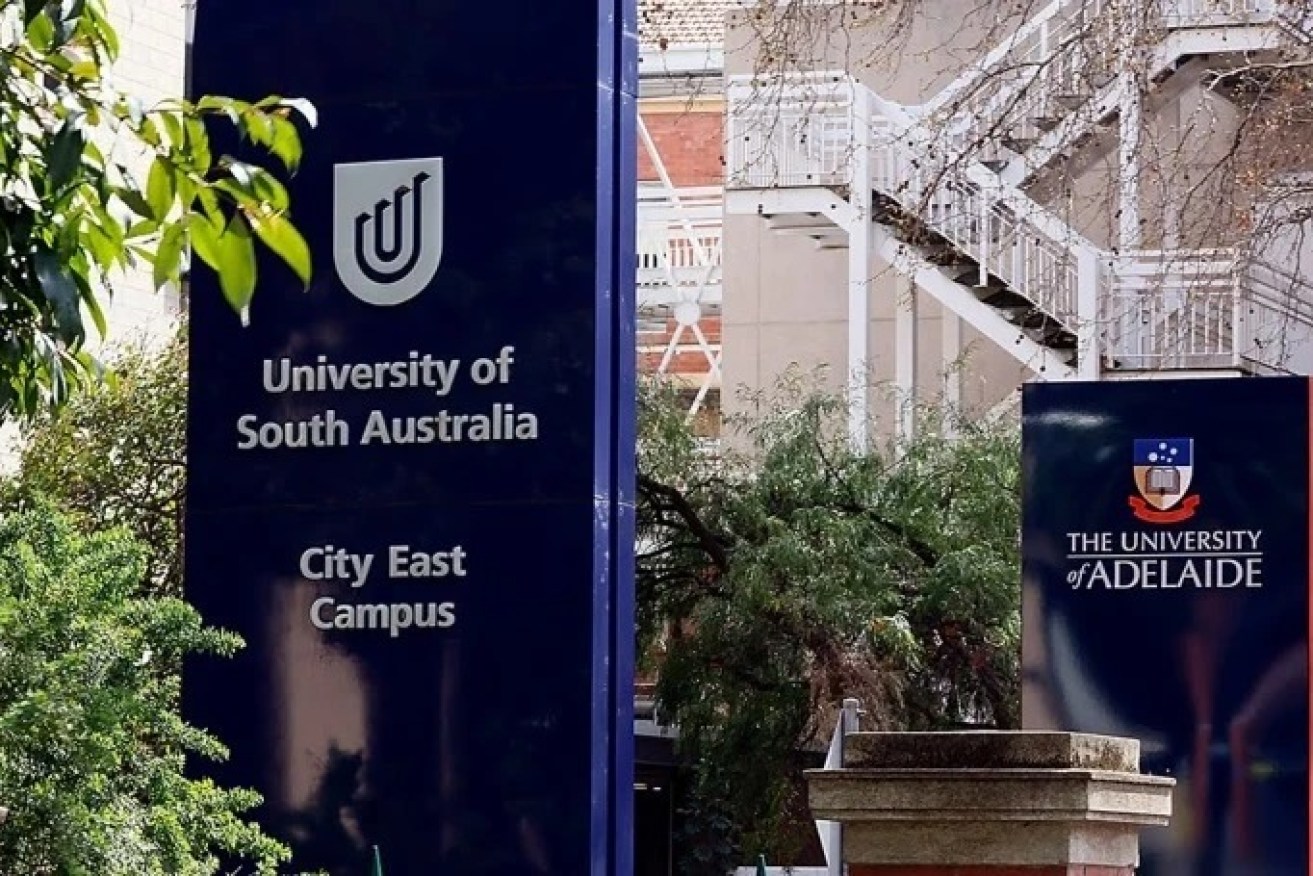Jobs, culture concerns in SA uni merger feedback
Staff, students and graduates at the universities of Adelaide and South Australia have raised concerns about potential job losses, lower standards and reputation impacts from a proposed merger being pushed by the Malinauskas Government.

Photo: Tony Lewis/InDaily
The universities this morning released a summary report of a two-month consultation into the proposed merger, with the feedback to help the institutions reach a final decision in June on whether to amalgamate.
Just 800 formal responses were received – representing 0.3 per cent of the total number staff, students and graduates who were invited to respond.
“The data cannot be relied on to establish a statistically representative overall view,” the universities stated in their summary report.
“However, insights garnered through the feedback received can provide another input point while considering the various threshold decisions ahead.”
Both institutions announced in December that they had agreed to investigate a merger with a feasibility study and business case – but said that any new institution would be called Adelaide University and open on January 1, 2026.
Premier Peter Malinauskas last month said that regardless of the universities’ decision, the state government would “make” the merger happen: “It’s not a done deal, but we are going to make this happen. That’s my government’s policy,” he said.
But according to the summary report, staff, students and graduates raised “concerns about culture and employment impacts” if the merger goes ahead.
Those concerns included the “potential for a loss of skilled staff, the loss of autonomy in staff decision-making, and difficulty in integrating departments with different cultures and structures”.
Stakeholders also reportedly stated there was “a risk that a combined university could have lower standards than the individual institutions” and “a risk of both universities’ brands and identifies being lost”.
Other listed concerns included the cost of funding a merger, whether the amalgamated university would have a sustainable financial model and whether resources would be allocated in a “fair and equitable manner”.
The majority of respondents – 21 per cent – said “economic growth, research and community impact” should be the priority of a combined university if the merger goes ahead.
They said the proposed new university should “develop research excellence across diverse fields, including Humanities, Arts, and Social Sciences, to establish a world-class reputation for the university”.
They also said the university’s success should not be “based solely on metrics and rankings”, but staff satisfaction, retention and attraction statistics, as well as student experience, graduate employment, employer satisfaction and “contribution to the overall state agendas”.
“Impact cannot simply be measured financially and the university’s purpose should not be to make money,” the summary report stated.
“A positive external perception of the university is important for its success.
“This includes the university being a place where people want to come and study/work from all facets of life.”
In an email to stakeholders this morning, UniSA Vice-Chancellor David Lloyd said the feedback provided “useful insights for reflection”.
“We appreciate the feedback and time many of you took to share your views about a potential combined university and what it could mean for higher education in South Australia and our community more broadly,” he wrote.
“The feedback will now form part of the comprehensive advice provided to our Councils as they each consider whether to further progress the concept of a university for the future.
“This consideration will take place in the middle of the year. If there is support from both Councils to move forward, there will be extended opportunities for you to engage, co-create and contribute in the months and years ahead.”
It comes after the National Tertiary Education Union last month raised concerns about the consultation, saying staff were “cynical” that their feedback would be properly considered by the universities and state government in the wake of Malinauskas’ comments.
If the merger takes place, a transition council would be created with up to 14 members plus a chancellor, with each university nominating half the members. UniSA would nominate the chancellor and, in the first instance, the leadership would be shared between two co-Vice-Chancellors.
A successful merger would immediately make the new university the largest educator of Australian students in the country.
The state government has offered an unspecified financial sweetener to the institutions to “maximise the transformational opportunities being pursued”.




